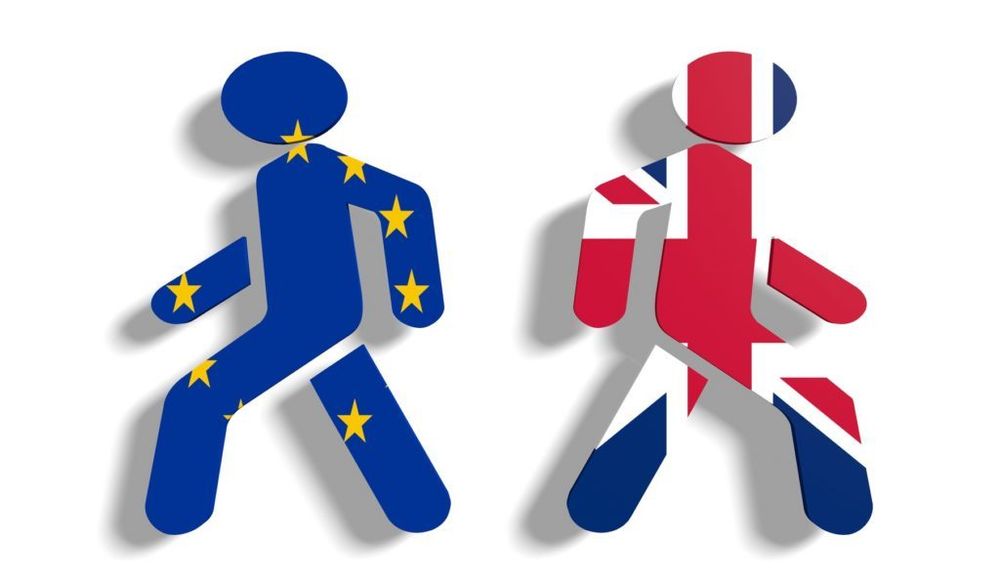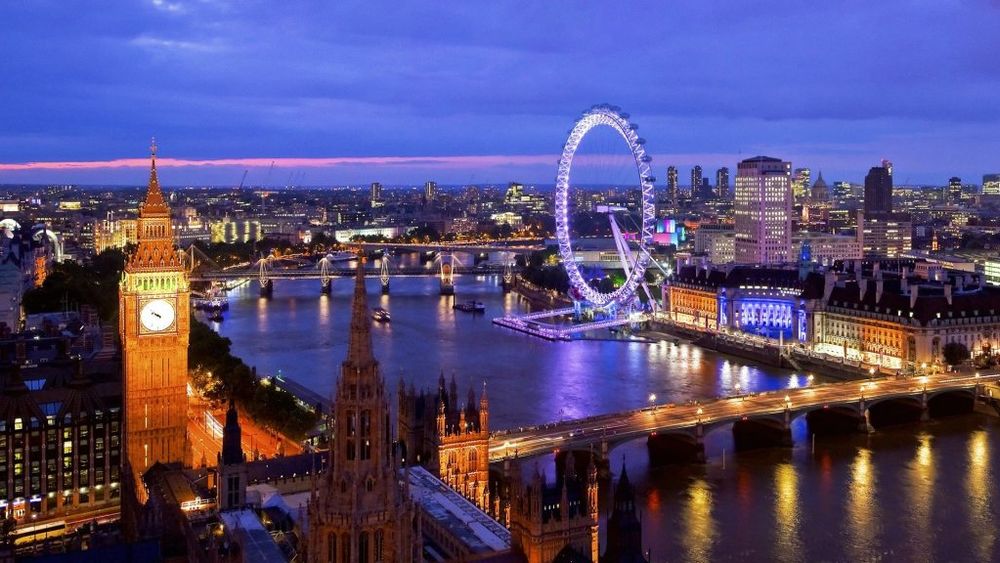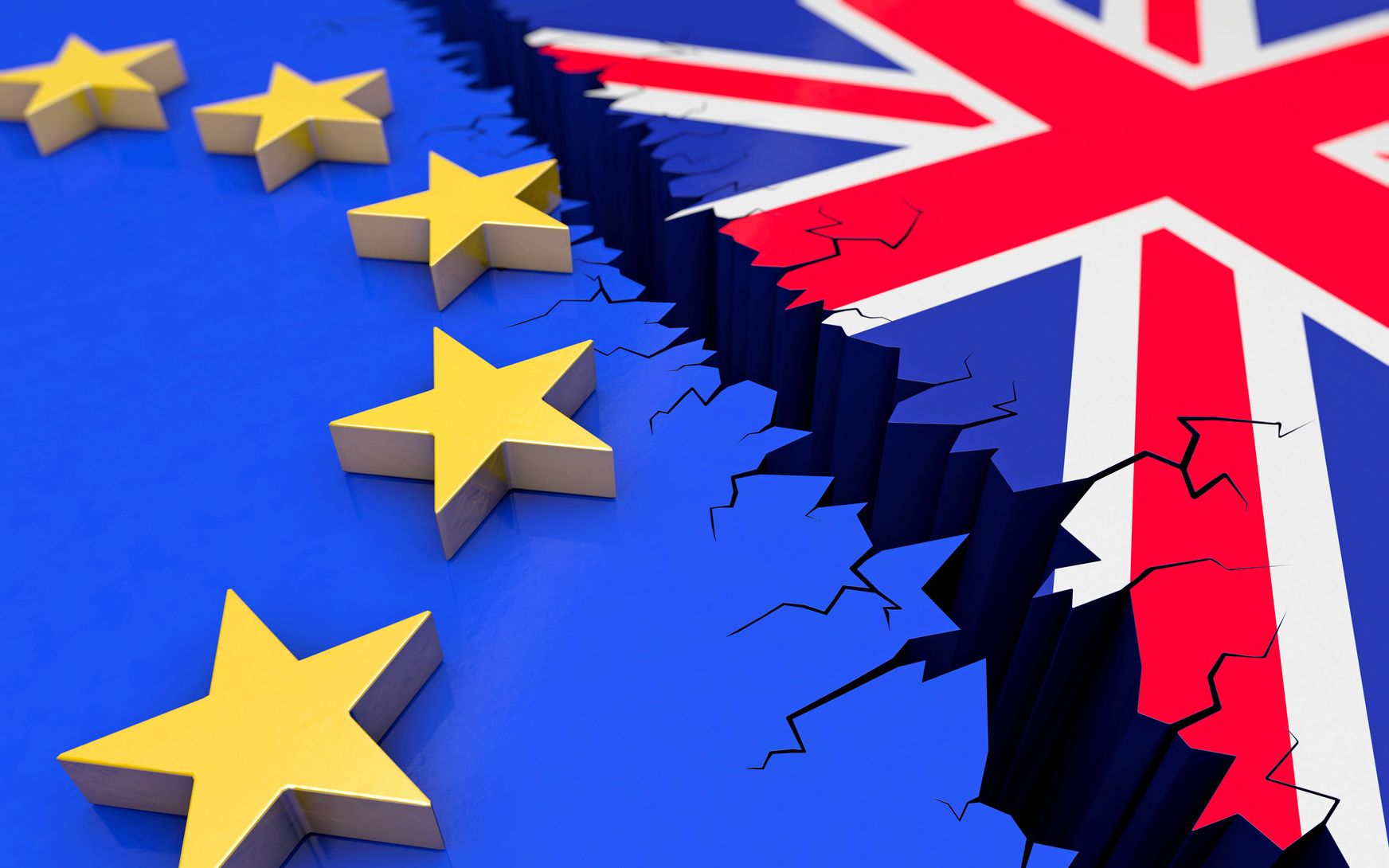The world is increasingly dominated by free trade deals, or conversely the protectionist policies of key global markets. All of which will be affected by whatever deal is done between the UK and EU and Brexit.
If you wanted to get hold of any major world political or business leader this week then you would be wasting your time trying to find them in New York, Hong Kong, Shanghai, Tokyo or London. Instead you would need to go to a quiet ski town, Davos, in the quiet Swiss canton of Graubündenss. Home, once again for the annual World Economic Forum.
It’s also where the world’s media have camped out thrusting microphones and TV cameras in front of anyone in a sharp suit and a soundbite to match. There are no prizes for guessing what the main subject of debate and conjecture at this week’s event. Flick through every major international television news channel and there seems to be only one story worth covering – Brexit.

There won’t be much skiing being done in Davos this week…
For it is not just those of us in the UK who are fixated on what is going to finally happen come March 29 and the date we are set to formally leave the EU. Even if you are not doing a great deal of business in the UK, what happens to its economy and, in particular, the strength of sterling against other global currencies is going to have a knock-on effect to how business is done around the rest of the world. Particularly at a time when the slow down in China, trade war with the US, and continued protectionist stance of President Trump – who is not even in Davos – is already sending nervous waves across the world finance markets.
Global impact
The UK’s position as the world’s major financial hub has already been said to be lost, which is one thing, the fear for so many countries is that a lot of the foreign investment that the UK provides in overseas markets could also now be under threat. Take Sweden where the UK is the third largest foreign investor into the country, worth €30 to €40 billion a year. Then there is the UK’s position as a major importer of goods. Murcia, in Spain for example, exports 75% of its agri-food products to the UK. The Flanders region of Belgium estimates it will lose 40,000 jobs on the back of a hard Brexit, with exports adding up to €27bn.
The UK’s position as a global market for wine is not going to disappear just because of Brexit. Far from it, but it is going to have an impact on those countries that rely on the UK for so many of its exports. It currently features in the top five, if not top three export markets for most of main Old and New World wine producing countries. Wine Australia, for example, revealed this week that the UK accounts for a third of its exports alone.
So even if you are not selling wine to the UK what happens with the European Union’s trading relations with the UK will have a knock-on impact with the rest of the global wine trading world. How you can do business there is going to have an impact on the goals, targets and strategies you have for the rest of the world.
Yes, many producers have already voted with their feet and decided the UK is currently too much trouble than it’s worth and are switching time and resources to build up business in new and existing markets.
EU relations

You go your way…and we’ll go ours.
But if, when and how the UK leaves the EU, will then have a direct bearing on how the EU will then look to trade with the rest of the world. After all the UK is going to be hell bent on securing as many attractive, potentially free, trade deals with as many major countries as it can. Putting itself, by doing so, in direct competition with the EU for their business.
By signing the Withdrawal Agreement in the wake of its 2016 referendum and thereby formally starting negotiations with the EU to leave, the UK also gave up its right to start any formal trade negotiations with any non-EU country until the deal was ratified. Leaving itself effectively sitting on its hands until the final deal is agreed.
Which, in turn, has given the EU a two years head start to cast the net wide for new trading relations in a post-Brexit world. The EU, for example, has already opened the door to Australia and New Zealand and started talks with them about the possibility of setting up free trade deals for both. A move that would have an enormous impact on their respective wine industries. The EU is currently the Australian economy’s second largest export market and New Zealand’s third.
It would be a particular boost for Australia which is still celebrating the fact its 100% free trade deal with China finally came into force at the beginning of 2019.
EU and tariffs

The EU will be looking to strike even more free trade deals with non-EU countries knowing the UK will be looking to do the same
When it comes to trade deals the EU knows what it is doing. As the UK, as well as President Trump, is slowly but surely starting to work out. Let’s take a look at how it currently trades with the rest of the world in wine.
Currently all wine shipped from outside the EU and sold within its member states is subject to a range of tariffs. Only Chile and South Africa have been able to negotiate free deals and South Africa’s is only a part deal based on set volumes imported, the majority of which goes to the UK.
Otherwise all other countries have to comply with the following tariffs:
* €9.90 per 100 litres bulk still wine < 13% abv (~7p per bottle)
* €12.10 per 100 litres bulk still wine between 13% and 15% abv (~8p per bottle)
* €13.10 per 100 litres still wine <13 % abs (in containers less than 2 litres) (9p per bottle)
* €15.40 per 100 litres of still wine between 13% and 15% (~10 per bottle)
* €32.00 per 100 litres of sparkling wine (22p per bottle)
So clearly any subsequent moves post-Brexit by the EU to open up its borders to more free trade deals could result in major opportunities for wine countries around the rest of the world. Particularly as the EU will only be too aware of the growing competition it is increasingly going to face from major powers, such as China and Japan, and the strength of rival trading blocs such as the CPTPP (Comprehensive and Progressive Agreement for Trans-Pacific Partnership).
For those CPTPP countries they are looking to build their share and influence largely in the southern hemisphere and with markets closer to home. And if you happen to have such economic power houses as China, Asia and Japan on your doorstep then why not. The troubles of the UK and EU seem a long way away when there is so much business to be done there. If new opportunities then come up with the UK and EU separately all well and good, but they are not sitting waiting. They are taking action to make the most of what are already enormous opportunities in their respective countries to do business.
Particularly as the US continues to follow President Trump’s protectionist ‘America First’ trade strategy. It has left the stage clear for the rest of the world to make hay and strike increasingly important trade deals, both north and south of the Equator.
What next for Brexit?

How the House of Commons sorts out Brexit will have a big impact on the rest of the world
So where are we with Brexit? Good question. The clock is currently still ticking down to the March 29 deadline when the UK will formally leave the EU at 11pm GMT. But there are still many hurdles to get over before we get there. First of all the UK government has to agree the deal struck between the British Prime Minister, Theresa May and the EU. Which, let’s face it, could not be going any worse. The first vote was defeated by a record margin and we are once again back into the no man’s land of consultations, meetings, tabled amendments and continued political wrangling. All of which is bad news for business, the finance markets and overall confidence in the economy. Whichever way you voted.
Ask any business leader, big or small, what their big hope for 2019 is and they all same the same thing. Certainty. The security to make business decisions for the future of their companies.
We are, after all in the “unchartered territory” that the Prime Minister said we would be in if her deal was voted down. There are growing fears this could all end in such a political impasse that the UK crashes out of the EU with no deal and goes straight onto WTO trading terms. The worst case scenario – for business.
It’s why we are seeing increasingly febrile debates in the House of Commons and moves by MPs to take matters into their own hands, with a series of votes potentially in the coming weeks, to ensure it will be Parliament and not the UK government that ultimately decides whether there is a no deal or not.
Which, in turn, could put a number of other scenarios into play over the coming weeks, from completely removing the Withdrawal Agreement, to holding a general election, or having a so called People’s Vote that would effectively throw the issue back to the UK electorate to decide what sort of Brexit the UK wants – or if it still wants a Brexit at all.
If the Withdrawal Agreement is approved then essentially nothing will effectively change for at least 21 months as we enter a transitional period in which the final trade relationships would be negotiated. At the moment all scenarios are possible.
Whatever ultimately happens, one thing is clear, the global wine map is set to change once again and new winners and losers will emerge.
- This is an adapted and extended article from what that first appeared on VINEX, the global bulk trading site for bottled and bulk wine.































